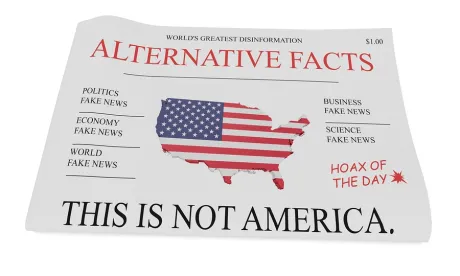The Arizona Court of Appeals issued a unanimous opinion late last month reaffirming the strict requirements for limiting the media's ability to disseminate public information and strongly cautioning trial courts against imposing prior restraints in all but the most exceptional circumstances.
The case arose as a result of the high-profile capital murder trial of John Michael Allen, who was charged in the death of a 10-year-old girl. Coincidentally, concurrent with that trial, the lead prosecutor, Jeannette Gallagher, appeared and testified as an alleged victim in the unrelated stalking trial of Albert Karl Heitzmann. The two trials took place in neighboring courthouses in downtown Phoenix.
After The Arizona Republic requested placement of a still camera in the courtroom at the Allen murder trial, Ms. Gallagher argued for prohibiting media coverage, claiming that she did not "want to see it affect [the Heitzmann] jury and have me as a victim have to go through that trial again." One week later, during a hearing on The Republic's camera coverage request in the Allen case, Arizona Superior Court Judge Erin Otis issued an order barring the media from publishing Ms. Gallagher's name and likeness until the conclusion of the Heitzmann stalking trial.
Several news organizations—Phoenix Newspapers, Inc. (The Arizona Republic), Meredith Corporation (KPHO-TV and KTVK-3TV), KPNX-TV Channel 12 and The Associated Press—sought "special action" review of the trial court's order by the Arizona Court of Appeals, arguing that there would be no adequate remedy on appeal and that the case raised issues of statewide constitutional importance. After briefing and oral argument, the court accepted jurisdiction, rejected the State's argument that the case was moot and found instead that the issues raised were "capable of repetition, yet evading review."
Citing the three-factor test articulated in Nebraska Press Association v. Stuart, 427 U.S. 539, 559 (1976), the court evaluated and rejected the alleged justifications for the trial court's order. Regarding the first factor, the Court of Appeals concluded that although the State has an interest in protecting the sanctity of criminal proceedings, the alleged harm was too speculative to satisfy the rigorous constitutional requirements. Next, the court found that the trial court had failed to consider less-restrictive alternatives before imposing an outright ban on the dissemination of Ms. Gallagher's name and likeness. Finally, the court found that the prior restraint was ultimately ineffective because the case was already a matter of public interest, and Ms. Gallagher's name had been widely published in news accounts of the Allen trial. Accordingly, the court held that the prior restraint was "likely unnecessary and ineffective, and it infringed the media's right to truthfully disseminate public judicial records that already identified the prosecutor."
For these reasons, the Arizona Court of Appeals concluded that the trial court's order constituted "an impermissible prior restraint on the media’s constitutional right to cover the Allen trial." It also criticized the lower court for not "memorializ[ing] its findings," including weighing the rights of defendants, the press, and any victims.




 />i
/>i

